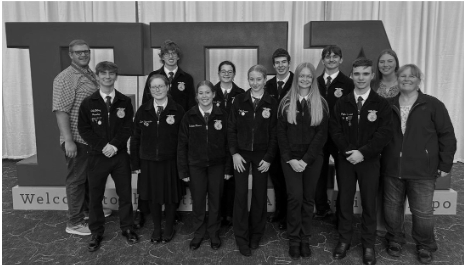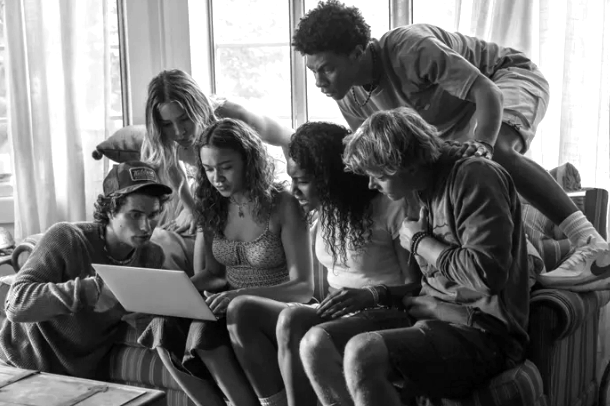Researchers have grown fully synthetic mouse embryos without a uterus, sperm, or eggs
April 13, 2023
After eight days, the embryos developed beating hearts and properly circulating veins. This advancement implies that all animals–even humans–may eventually be produced from stem cells in labs. Currently, the embryos can only survive a little over a week.
According to science.org, Jacob Hannah, Weizmann Institute of Science developmental biologist, and his colleagues engaged in more than seven years of trial and error.” The previous length that embryos could survive outside of a uterus was three to four days.
Biology teacher Mr. Brady Green has been anticipating something like this for a while. “Ever since the human genome was sequenced, I’ve been expecting big breakthroughs,” he says. “I think that it’s an important advancement.”
“The team’s two-step process starts by growing the embryos, extracted from a pregnant mouse just before implantation, on culture plates from day five to day seven of development,” according to science.org. “That is when the embryos undergo a process called gastrulation, in which they transform from a hollow ball of cells into a multilayered structure with specific cells destined to form different tissues.” Then, the researchers transfer the embryos to rotating jars, where they can keep them alive for an additional four days of development.
Alexander Meissner, molecular genetics developmental biologist who was not involved in the experiment, does not think the technique can be extended any longer. “There’s a natural limit in terms of how big [the embryos] can get without nutrients and blood supply. It’s not obvious to see how you can go from here to an actual ex utero delivery,” he says in an interview with science.org.
AP biology teacher Mrs. Kristian Jones-Knoll believes we will be to the next step within 15 years. “I think that we might be able to grow organs,” she says. “Instead of finding donors, we might be able to regenerate organs. They’ve been working on the stem cell stuff for quite some time now and I think it’s really interesting.”
Green agrees. “I think it opens the door for the potential of growing organs for humans,” Green says. “I always teach my biology students that it’ll be in their lifetimes and maybe I’ll be gone before it all happens but I think it’s exciting.”
Chemistry and Physics teacher Mrs. Christine Jestel also believes they will be able to bring embryos past eight days of living. “I am concerned that we are in the world of bringing embryos into the world that don’t have parents there with them,” she explains. “ I am concerned that this is putting a lot of power in the hands of the people.”
Other researchers are developing methods for embryo growth in humans. Hanna has not attempted to grow human embryos because it would violate guidance from the International Society for Stem Cell Research which recommends against culturing human embryos for longer than 14 days of development. The guidelines are being revised and updated in May. “Of course, it’s scientifically important to do such experiments with human embryos, because we have so little information about these stages of human development,” Hanna explains to science.org.
Jestel does not know how to regulate this in a moral way. “I know there’s plenty of arguments that I haven’t even thought of yet for why we shouldn’t be tampering down his road, and I also know plenty of arguments for why we should,” she explains. “We know that we can fertilize embryos and I think that’s a great advancement, I’m just not sure about what it means going forward if that becomes a regular occurrence.” She believes there is an ethical way to conduct this research, but is uncertain that everyone will choose that way. “Not everyone makes the right choices.”
Green, however, is less worried about the moral implications. “I don’t think there’s anything nefarious going on,” he says. “If you can use this technology to help cure a disease or give someone an organ that they need, then clearly it’s a good thing.” Green does acknowledge a counterargument. “I know there are ethical questions that come into play but I still think that if you can do something like this–especially from the perspective of being able to clone just organs–I don’t think many people would disagree with that,” he explains. “Now if you’re cloning entire humans to harvest their organs then clearly that’s a different subject.”











